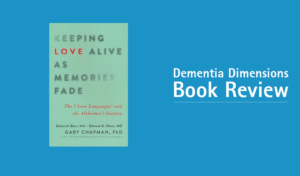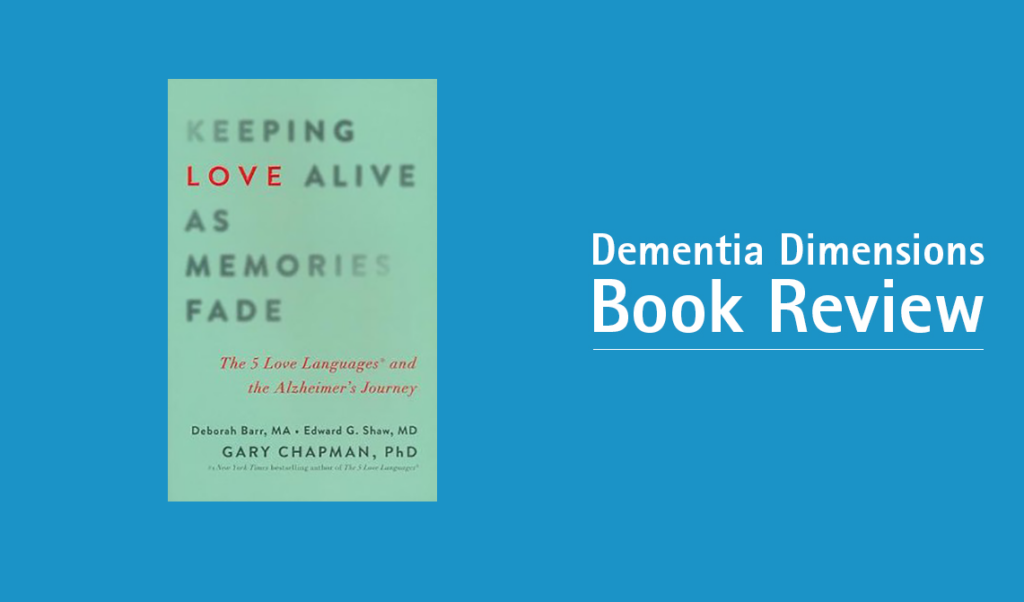According to the 2024 Alzheimer’s Disease Facts and Figures approximately 10% of dementia caregivers are providing help to a spouse with Alzheimer’s disease or another form of dementia. And, while dementia can be challenging to any type of relationship, this journey represents a unique set of variables for married couples. If you are a spousal caregiver at the beginning of this journey, it may seem impossible that the love, intimacy, and most treasured tenets of a strong marriage could be sustainable through the end stages of this progressive disease.
Authors Deborah Barr, Edward Shaw, and Gary Chapman, a #1 New York Times best-selling author of The Five Love Languages, in their book Keeping Love Alive as Memories Fade, present how, through the application of the 5 Love Languages model, this can be achieved. Called “collaborative, groundbreaking work between a healthcare professional, caregiver, and relationship expert,” readers will not be disappointed as they travel through the pages of this book providing just the right mix of personal, heartwarming stories, practical tips, best practice case studies, and general guidance.
For those coming to this book having very little familiarity with the 5 Love Languages, do not be concerned that this will be a barrier to your understanding of the concepts nor hinder your ability to apply the principles presented. In the beginning chapters of the book, readers are given a crash course in the 5 Love Languages model and can take self-administered tests according to dementia journey stage. How the reader and his/her spouse score on the tests helps guide how they use the information in the book. Tips and best practices are outlined by disease stage and by preferred love language throughout the book.
Perhaps among the most heartwarming pieces of the book are the stories of the couples that have used the practices and achieved success. Within a chapter entitled “Stories of Hesed,” which is a Hebrew term meaning kindness, loving-kindness; love; or charity, some of the most beautiful examples of love staying alive through dementia are captured in firsthand accounts and with concrete examples. It provides much-needed inspiration to persevere through this challenging quest.
Realistically, those on the dementia journey will most certainly have bumps along the way even if the principles of the book are applied. The authors do spend appropriate time explaining and providing solutions for the behaviors and situations that “put love to the test.” These “threats to the emotional glue,” such as odd behaviors, delusions of infidelity, and mistaken identity, among others, are thoroughly explored and care partners are given practical tips for “choosing love” and making every day “the best day.”
Overall and despite the caregiving role for spouses being “the journey that no one wants to take,” the authors of Keeping Love Alive As Memories Fade have successfully provided hope throughout the pages of this book. Whether you are a fan of the 5 Love Languages model or not; whether you are a hopeless romantic or not; every person deserves to be able to give and receive love despite the limitations brought on by disease or circumstance, physical ability, or level of cognitive degeneration. This beautifully written book, shows us how. And for this reason, we highly recommend it!








